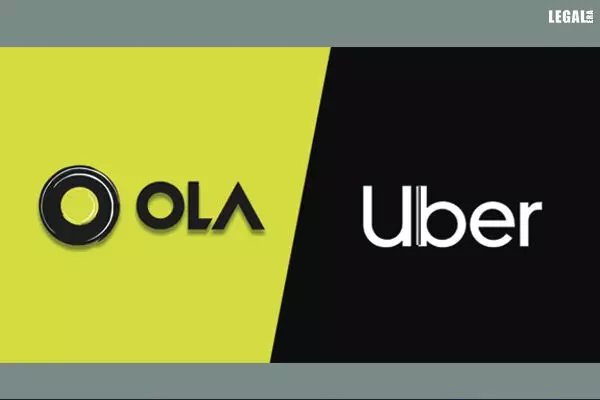- Home
- News
- Articles+
- Aerospace
- Artificial Intelligence
- Agriculture
- Alternate Dispute Resolution
- Arbitration & Mediation
- Banking and Finance
- Bankruptcy
- Book Review
- Bribery & Corruption
- Commercial Litigation
- Competition Law
- Conference Reports
- Consumer Products
- Contract
- Corporate Governance
- Corporate Law
- Covid-19
- Cryptocurrency
- Cybersecurity
- Data Protection
- Defence
- Digital Economy
- E-commerce
- Employment Law
- Energy and Natural Resources
- Entertainment and Sports Law
- Environmental Law
- Environmental, Social, and Governance
- Foreign Direct Investment
- Food and Beverage
- Gaming
- Health Care
- IBC Diaries
- In Focus
- Inclusion & Diversity
- Insurance Law
- Intellectual Property
- International Law
- IP & Tech Era
- Know the Law
- Labour Laws
- Law & Policy and Regulation
- Litigation
- Litigation Funding
- Manufacturing
- Mergers & Acquisitions
- NFTs
- Privacy
- Private Equity
- Project Finance
- Real Estate
- Risk and Compliance
- Student Corner
- Take On Board
- Tax
- Technology Media and Telecom
- Tributes
- Viewpoint
- Zoom In
- Law Firms
- In-House
- Rankings
- E-Magazine
- Legal Era TV
- Events
- Middle East
- Africa
- News
- Articles
- Aerospace
- Artificial Intelligence
- Agriculture
- Alternate Dispute Resolution
- Arbitration & Mediation
- Banking and Finance
- Bankruptcy
- Book Review
- Bribery & Corruption
- Commercial Litigation
- Competition Law
- Conference Reports
- Consumer Products
- Contract
- Corporate Governance
- Corporate Law
- Covid-19
- Cryptocurrency
- Cybersecurity
- Data Protection
- Defence
- Digital Economy
- E-commerce
- Employment Law
- Energy and Natural Resources
- Entertainment and Sports Law
- Environmental Law
- Environmental, Social, and Governance
- Foreign Direct Investment
- Food and Beverage
- Gaming
- Health Care
- IBC Diaries
- In Focus
- Inclusion & Diversity
- Insurance Law
- Intellectual Property
- International Law
- IP & Tech Era
- Know the Law
- Labour Laws
- Law & Policy and Regulation
- Litigation
- Litigation Funding
- Manufacturing
- Mergers & Acquisitions
- NFTs
- Privacy
- Private Equity
- Project Finance
- Real Estate
- Risk and Compliance
- Student Corner
- Take On Board
- Tax
- Technology Media and Telecom
- Tributes
- Viewpoint
- Zoom In
- Law Firms
- In-House
- Rankings
- E-Magazine
- Legal Era TV
- Events
- Middle East
- Africa
Ola, Uber and others allow provisional licenses

Ola, Uber and others allow provisional licenses
During the PIL complaint against transport aggregators, a compliance document was filed alleging that there was no mechanism for consumers to resolve complaints against Uber.
According to the state of Maharashtra, the Bombay High Court was informed on Monday that Ola, Uber and 10 other taxi aggregators acquired provisional aggregator licenses under the Motor Vehicles Amendment Act of 2015 and the Motor Vehicle Aggregators Guidelines of 2020 [Savina Crasto v. State of Maharashtra & Ors].
Government Pleader Jyoti Chavan provided the Court with a compliance report informing them of the following developments:
• The regional Transport Authority (RTA) has been authorized by the State government to act as the licensing authority;
• RTAs held a meeting to discuss RTAs license 29 applications for aggregators and given a status report that 12 aggregators, including Ola and Uber, have been granted provisional licenses of their respective aggregators.
• 17 other applications, in addition, are being considered.
The compliance reports were submitted in connection with public interest litigation (PIL) against transport aggregators, alleging that Uber lacks a grievance redressing mechanism to resolve consumer complaints.
In response to the petitioner's request for time to examine the report, the Bench of Chief Justice Dipankar Datta and Justice MS Karnik set Tuesday as the date for hearing the matter.
Cab aggregators had been ordered earlier by the Bench to secure a license from the Maharashtra government. Accordingly, the aggregators applied for licenses, for which the authorities gave them provisional approval.
At an earlier hearing, it was informed that taxi aggregators would be required to obtain licenses and terms set out in the Act and Guidelines.
The Maharashtra government stated that the draft rules had been outlined based on the Maharashtra Regulations of Aggregators Rules, a document that remained pending approval from authorities.
It was clarified that the aggregators would be governed by guidelines of the Central government until the rules are issued and it was their responsibility to act as required by those guidelines.
Uber was permitted to run taxis within the state despite not holding the necessary licenses, the High Court observed.



